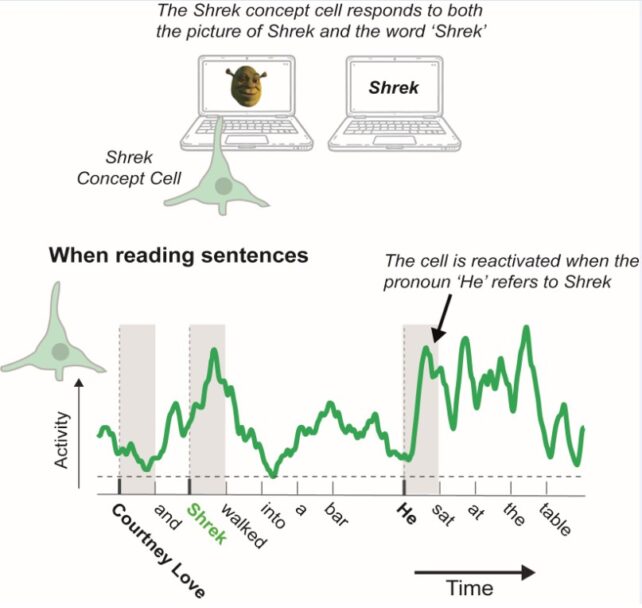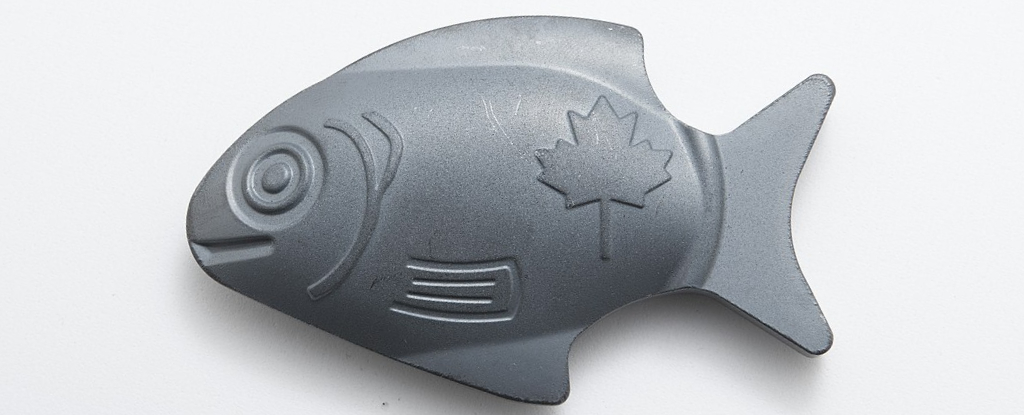Place your adverts here on InfoDig @ low rates; banner ads, sponsored links and guest articles etc. Contact us
 Still from Shrek, 2001. (Dreamworks)
Still from Shrek, 2001. (Dreamworks)
The way the human brain remembers certain individuals is closely linked to how we talk about them.
Neuroscientists have now shown that pronouns like 'he', 'she', or 'they' can activate the same neuron in the brain as a person's specific name.
Take these two sentences as an example: "Shrek and Courtney Love walked into a bar. He sat down at a table." In experiments, the pronoun 'he' caused the same neuron in the hippocampus to fire as the word 'Shrek'.
The hippocampus supports the retrieval of words, numbers and concepts from our memory, and pronouns appear to be part of that process.
Some of the neurons in the hippocampus are hypothesized to be 'concept cells', although they are more famously called Jennifer Aniston cells. In 2005, scientists found that photos of celebrities like Jennifer Aniston activated specific neurons in the hippocampus.
In the years since, scientists have substantiated the theoretical existence of these so-called concept cells, which seem to store representations of people, abstract concepts, or objects.
Concept cells activate when someone sees a picture of a specific individual, when they hear or read the name of that person, or when they try to recall that person from memory.
Now, it seems they also reactivate when a pronoun is used as a proxy for a person's name.
The study is based on brain recordings from patients with intractable epilepsy, who had electrodes implanted deep in their hippocampus to identify where their seizures were occurring.
These implants also give scientists the opportunity to study how individual neurons in the hippocampus fire during wakeful activity.
When a participant was shown a picture of Shrek, researchers noticed a particular neuron would fire in their hippocampus.
This same neuron also activated when volunteers were asked to read a passage about Shrek and Courtney Love and the name 'Shrek' appeared.
Gradually, the activity of that neuron began to fade, but when the pronoun "he" was used in a later sentence to refer to Shrek, the same 'Shrek' neuron activated. When volunteers read the pronoun "she", on the other hand, it did not activate the same cell.
What's more, if Shrek was absent from the first sentence, the pronoun 'he' did not activate the 'Shrek' concept cell. This suggests that only pronouns assumed to be referring to Shrek activate the concept neuron.
 The sentences about Courtney Love and Shrek with corresponding brain activity in the hippocampus concept cells. (Dijksterhuis et al., Science, 2024/Netherlands Institute for Neuroscience)
The sentences about Courtney Love and Shrek with corresponding brain activity in the hippocampus concept cells. (Dijksterhuis et al., Science, 2024/Netherlands Institute for Neuroscience)"We had the participants answer a question at the end of the sentences about who performed the action," explains neuroscientist Matthew Self from the Netherlands Institute for Neuroscience.
"We could predict whether the patients would give the correct answer based on the activity of the individual concept cells."
Volunteers also read sentences where two people had the same pronouns. In this case, whichever person evoked the most activity in the hippocampus to start with was the one that got assigned the pronoun later on.
"This could be based on chance fluctuations in activity on a trial-by-trial basis or an internal preference for one of the two characters in the sentence," says Self.
The findings suggest that concept cells help the brain link new information to an already existing concept.
"For example, when we read about Shrek that 'he' put on sunglasses, we can update Shrek's representation and predict his future appearance," the authors of the study write.
Tellingly, people who have suffered damage to the hippocampus can sometimes have trouble producing or understanding pronouns.
"Theories about the evolving mental representation of the narrative during reading suggest that previously read words are stored in working memory so that they can be combined with new information," explain the international team.
"How brain networks implement such syntactic computations is a topic for future research, which can now be investigated."
The study was published in Science.















 English (US) ·
English (US) ·